Nothing Bright But the Shine of Your Coat by Cressida Blake Roe
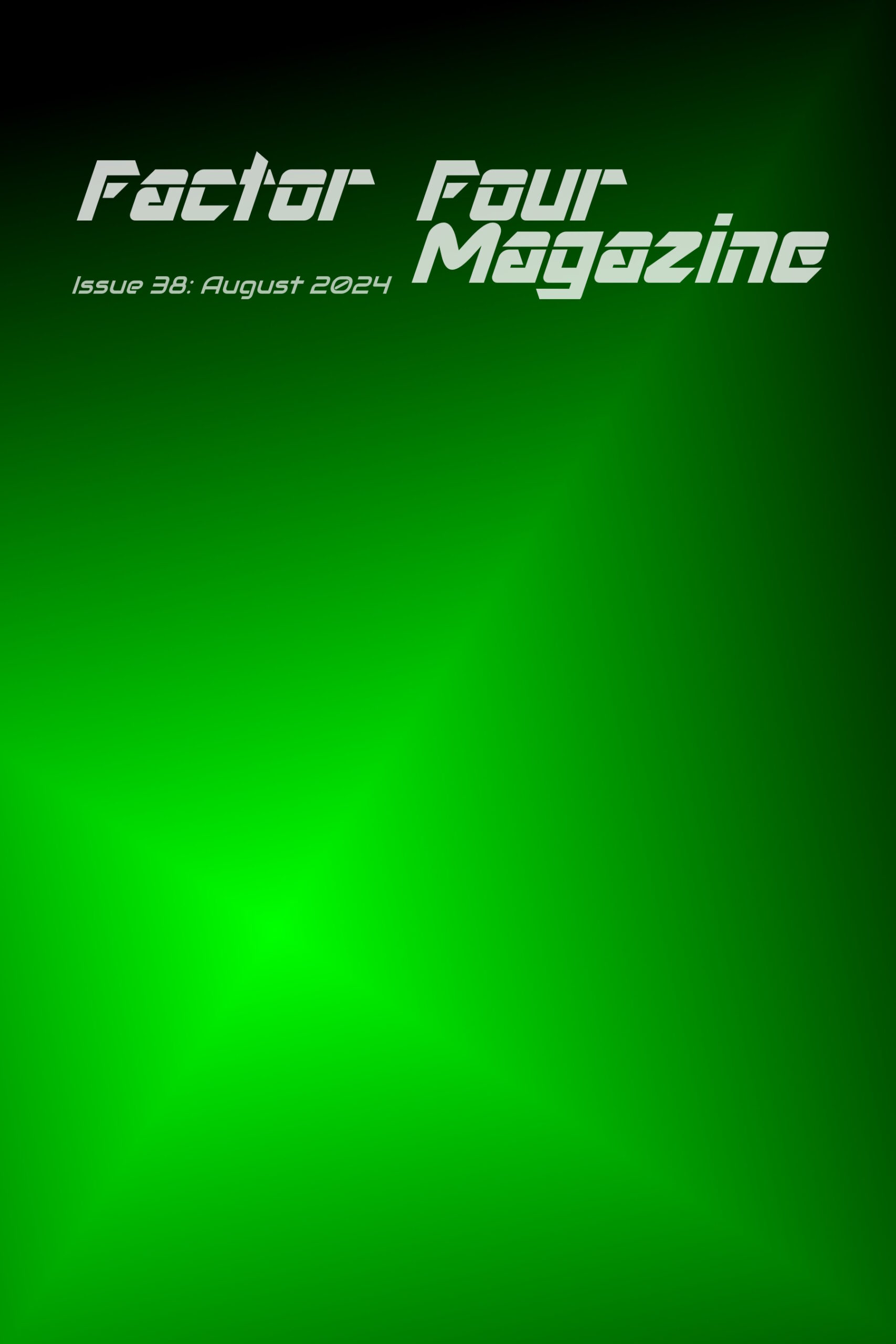
The white bear’s favorite color is green. I know this because the first thing it does every evening before dinner is thrust its warm, wet nose through the doors of the bureau and take my mother’s dress, my mother’s lucky green dress, in its teeth. Some nights, seams scream and tear, fabric fluttering from the hook. Other nights, its bloody mouth leaves streaks on the silk. Every night, it says, “You will wear this.” Its deep voice reaches me like a rumble underground, as though the cave we stand in spoke with the wind off the frozen plain overhead. “As you are here, I wish for you to look beautiful.”
The white bear’s favorite delicacy is ptarmigan, no more than a fragile morsel between its great paws. Every night, the snowy feathers flutter to land among the soup, the hors d’oeuvres on gilt plates that catchthe phosphorescence glimmering among the high rock walls. “How can you make cheeses with no animals?” I ask, crushing a canapé on my tongue in a burst of salmon and butter. I don’t always mention the food. Sometimes, I ask about the existence of hot water or books to read or the clean air we breathe.
But to everything, the bear replies: “I can bring anything you desire.” Its dark stare rests heavily on my face, a suffocating weight. “As you are here, I wish for you to live well.”
“Anything?” I demand, leaning forward into the blunt force of its wishing. “Anything at all?”
And the bear answers: “Except for your freedom, which I cannot grant because it is not mine to give.”
So I understand why the bear repeats the same lines like a halting stage actor, because there must be things it is not allowed to tell me. But there are other things I’d like to know, like whether the bear really does think my mother’s dress makes me beautiful, whether I’m too horrible to look at without it. The scar running across my face from eyebrow to jaw, dragging the corner of one eye and twisting my nose, has always shamed me with ugliness. The frost-rimed mirror hanging beside us suggests another story. But I know the mirror lies, because it reflects a human companion across the table from me, their hair long and white and their eyes wide and dark, and that is nothing I can believe.
Yet all these are things I cannot mention, cannot ask, so today I say something new: “Bring me something you are allowed to give. Bring me the sun.”
The bear lifts its great square head, and its eyes gleam of loss like two matte coins.
“I haven’t seen it in weeks, not since you stole me from my father’s house as your bride and brought me to this dim hell. I have seen nothing golden but these plates, nothing warm but freshly spilled blood, nothing bright but—but the shine of your coat. Bring me the sun, and I will be yours.”
The bear leaves the cavern for three days and two nights I measure only by counting my breaths, the length of my strides pacing the slick stone floor. No magic obeys me without its guardian spirit; the dining table sits empty; the mirror reflects nothing. Anyone might have saved me, then, if they wanted to. But nobody arrives, not my brother who swore vengeance on anyone who did me harm after the accident that left me disfigured, nor my father who said I would always have a home when no one would marry me. I miss them less and less, and I never wanted to marry a human man, anyway. My deep slumbers in the bear’s bed, a burst of pineapple and cashew in freshly baked bread—these haunt me more, now that they have been snatched away by my discontent.
At the end of the third day, the white bear drags itself back into the cave. Blood clots its fur, mostly its own. Its eyes find me in my ruined green dress that I haven’t taken off, and its jaws drops two crystal vessels. One shines hot and fierce; the other gleams darkly from some reflected brilliance.
“I brought what you asked,” it says in a voice like crackling gravel. “I may not survive this. But it will have been worthwhile, if the last thing I may do is make you happy.”
I kneel and crush my fingers in the thick, rough fur. The sun’s heat beams through the enchanted glass, but the bear flinches at its touch, shuddering so that I feel the small, human bones beneath my hands. The sun tells me the same tale about my wife’s self as the mirror did. Perhaps that is why it came for me: because we were alike, seen as the skin we wear, though that only showed half the truth about ourselves.
“I brought you the moon, too,” it says, pointing its nose toward the other vessel. “I could not bear to think of it all alone up in the sky, with no light to capture in the shallows and furrows of its face. I thought it might be lonely.”
I uncork the darker vessel and hold it up to my own reflection. It shows me exactly as I am. When I turn it toward the bear, it doesn’t look away. It doesn’t change. We are as we are, what we are always meant to have been. I no longer wish for anything else.
We place the vessels at either end of the cave, the sun behind my white bear and the moon behind me, a reminder of our weaknesses and our strengths. I wear the green dress. It tells me about the stars, the fish, the slowly melting world. And we lived there together, east of the sun and west of the moon, for a long time afterward.

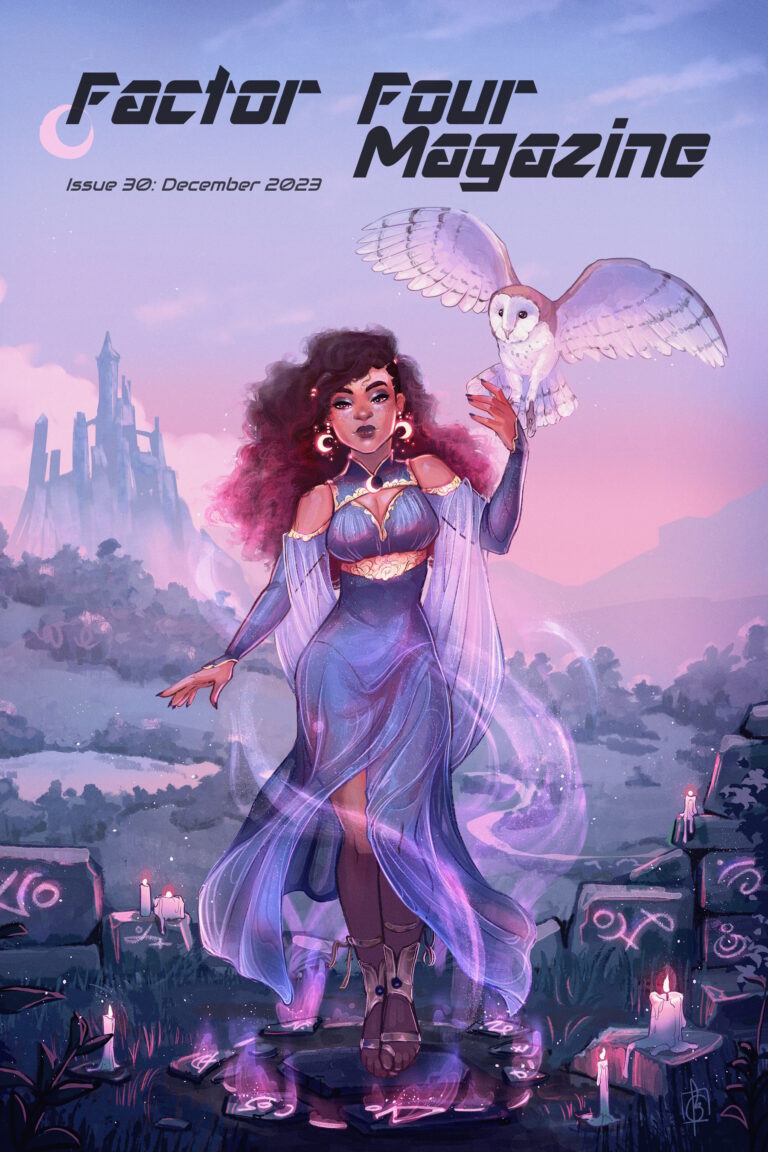
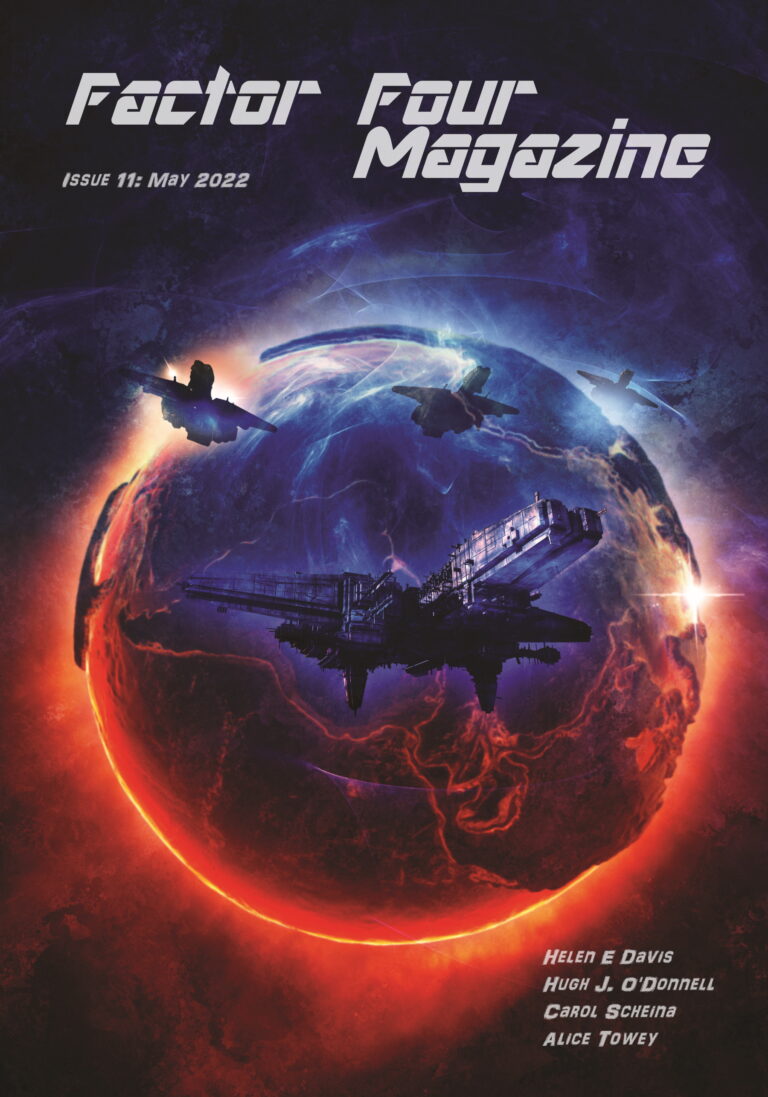
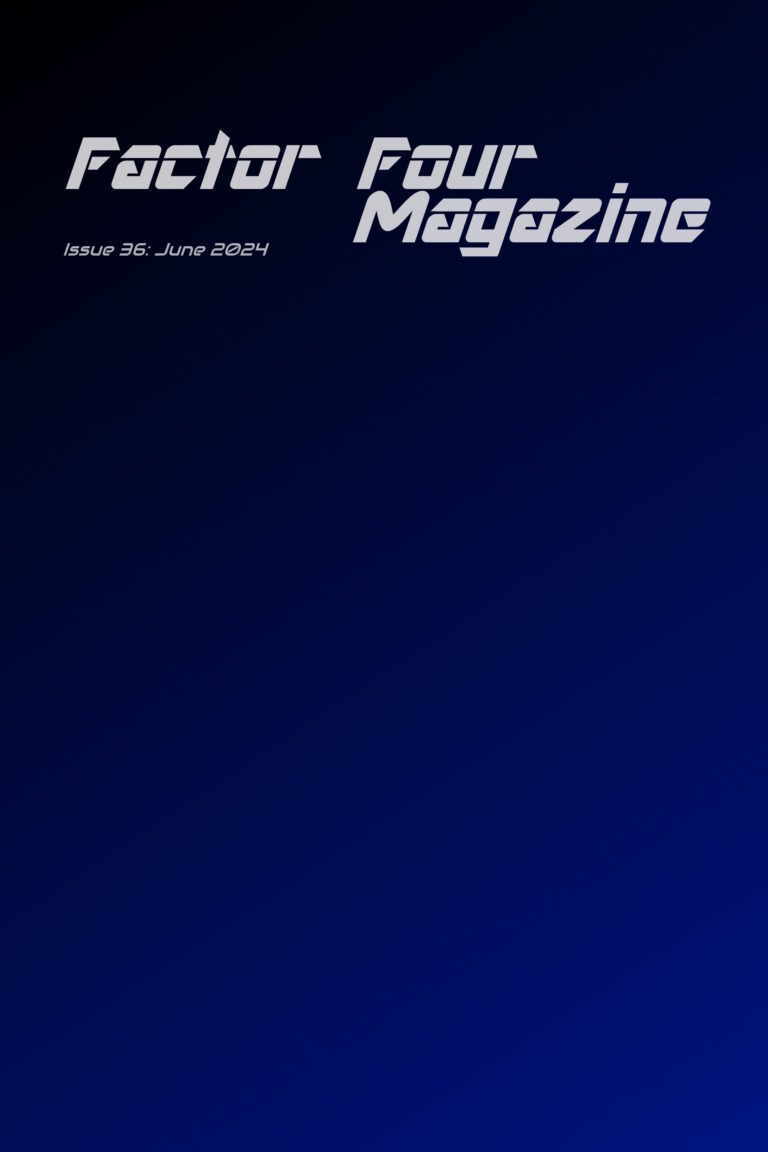
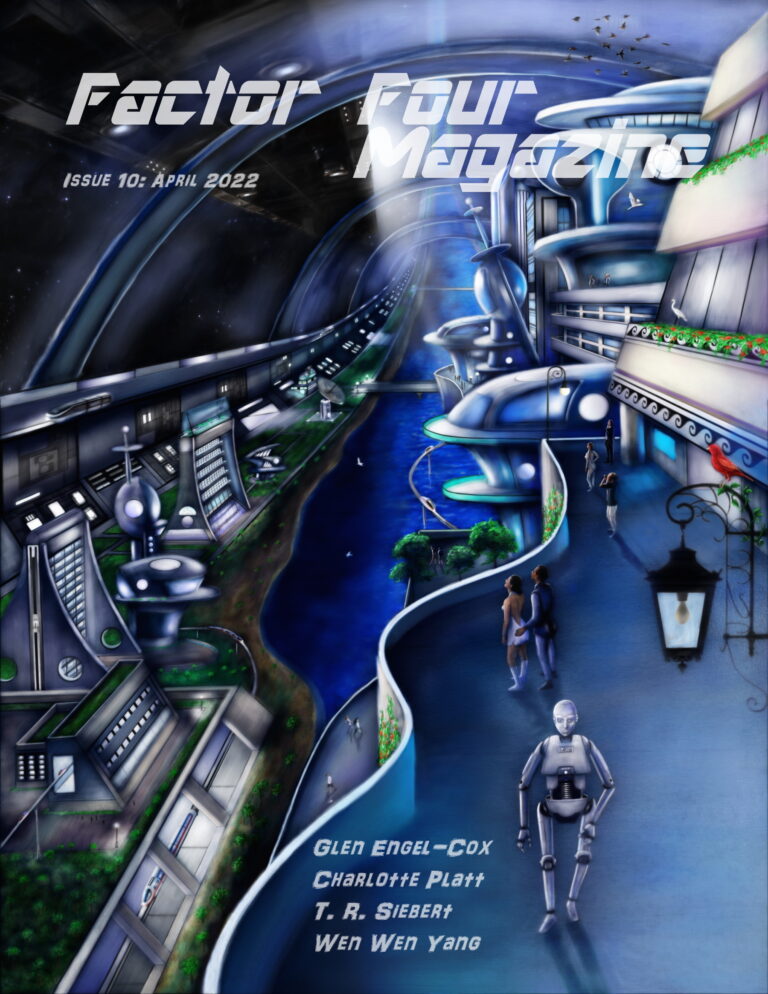
2 Comments